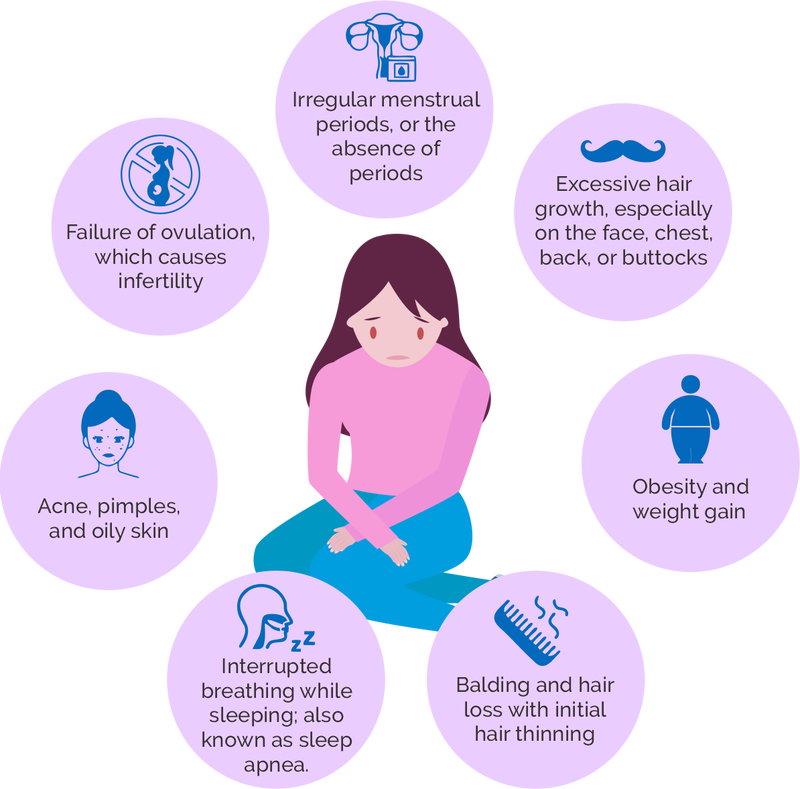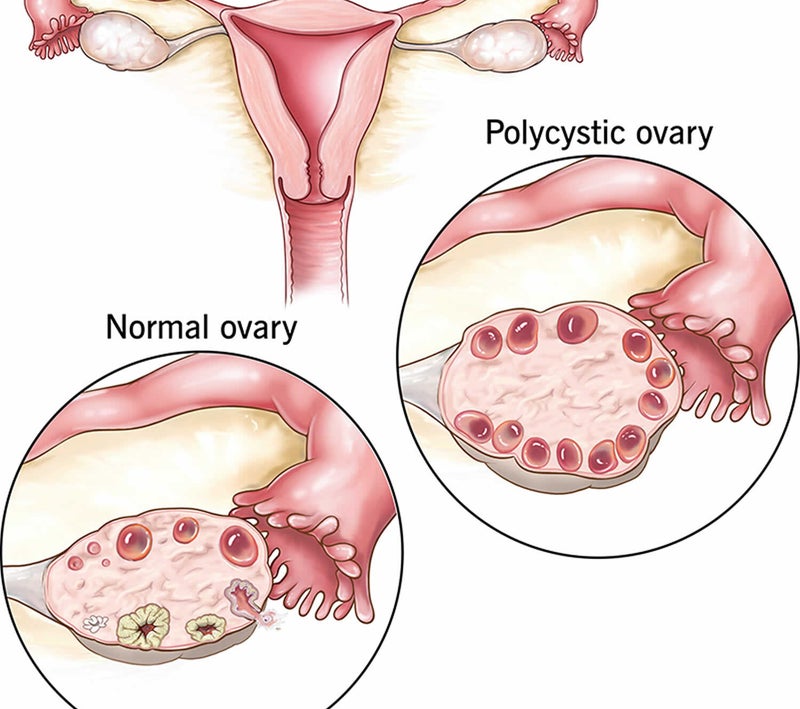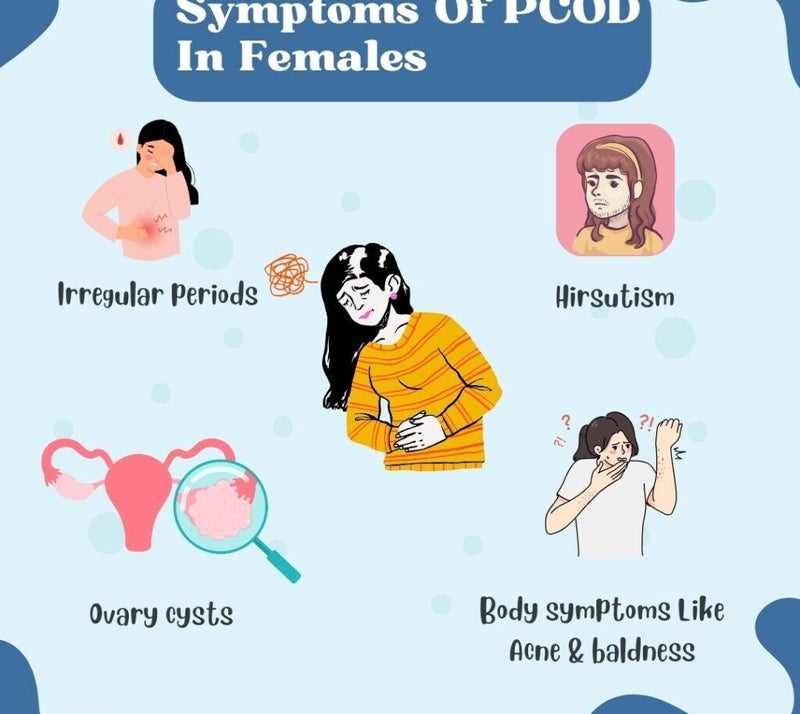







Understanding PCOD and How Hijama Cupping Therapy Can Help
Polycystic Ovarian Disease (PCOD) is a common hormonal condition affecting nearly one-third of women globally. Although not classified strictly as a disease, it can significantly impact physical and emotional health. PCOD occurs when a woman’s ovaries produce an excess number of immature or partially mature eggs, which develop into fluid-filled cysts. This condition may cause the ovaries to enlarge and trigger an increase in androgen (male hormone) levels.
In this article, we’ll explore the causes, symptoms, lifestyle impact, dietary recommendations, and how holistic approaches like Hijama cupping therapy can support women living with PCOD.
What Causes PCOD?
The exact cause of PCOD remains unclear, but a combination of genetic, hormonal, and lifestyle factors are thought to play a role. Some contributing factors include:
-
Excess androgen production – disrupts the development of follicles and prevents ovulation.
-
Insulin resistance – leads to high insulin levels, which stimulate excess androgen production.
-
Chronic low-grade inflammation – associated with higher androgen levels.
-
Genetic predisposition – family history can increase susceptibility.
-
Obesity – excess weight can worsen insulin resistance and hormonal imbalances.
Common Symptoms of PCOD
Symptoms can vary between individuals and may begin during adolescence or emerge later in life. Common signs include:
-
Irregular or missed periods
-
Excessive menstrual bleeding
-
Weight gain or difficulty losing weight
-
Acne and oily skin
-
Unwanted facial or body hair (hirsutism)
-
Hair thinning or scalp hair loss
-
Darkening of skin (especially on the neck)
-
Difficulty conceiving
-
Mood changes or depression
-
Sleep disturbances
PCOD and Fertility
While PCOD can interfere with ovulation, it does not necessarily lead to infertility. With early diagnosis, proper medical guidance, and lifestyle changes, up to 75% of women with PCOD can conceive naturally. However, hormonal imbalances can make the process more challenging.
Health Complications Linked to PCOD
If left unmanaged, PCOD may increase the risk of the following conditions:
-
Type 2 diabetes
-
High blood pressure
-
Cardiovascular disease
-
Sleep apnoea
-
Endometrial cancer
-
Anxiety and depression
-
Metabolic syndrome
-
Miscarriage or premature delivery
Nutritional Guidance for Managing PCOD
While no single diet can cure PCOD, healthy eating can significantly ease symptoms and support hormone regulation. Consider the following dietary guidelines:
✅ Recommended Foods:
-
High-fibre foods: quinoa, lentils, chickpeas, sweet potatoes, and oats
-
Lean proteins: fish, skinless chicken, tofu
-
Healthy fats: avocados, olive oil, flaxseeds, walnuts
-
Low GI carbs: whole grains, brown rice, whole wheat pasta
-
Green leafy vegetables: spinach, broccoli, kale
-
Fresh fruits: berries, apples, watermelon, peaches
❌ Foods to Avoid:
-
Refined carbs: white bread, pasta, sugary cereals
-
Red and processed meats: sausages, bacon, beef
-
Saturated fats: butter, cheese, creamy desserts
-
Sugary drinks and sweets: fizzy drinks, pastries
-
Excessive salt: contributes to water retention
💧 Drink plenty of water and eat smaller, frequent meals to reduce bloating and regulate blood sugar.
Home Remedies to Support Hormonal Balance
Here are natural, time-tested remedies to incorporate into your daily routine:
-
Warm water with lemon and honey – detoxifies and boosts metabolism
-
Turmeric milk with black pepper – supports hormonal balance and reduces inflammation
-
Green smoothies – include spinach, kale, cucumber, and green apples
-
Fenugreek water – soak 2 tbsp overnight and drink on an empty stomach
-
Coriander water – soak 1 tbsp in warm water overnight
-
Moon bathing and sun exposure – balance melatonin and boost vitamin D
-
Desi ghee (1 tbsp) on an empty stomach – supports digestion and hormones
Lifestyle Strategies for Managing PCOD
Lifestyle changes are essential for symptom relief and long-term wellness:
🧘 Regular Exercise
Helps with weight management, reduces insulin resistance, and balances hormones. Include a mix of cardio, strength training, and yoga.
💤 Quality Sleep
Aim for 7–9 hours of restful sleep per night. Poor sleep increases cortisol, disrupts insulin, and worsens PCOD symptoms.
🌞 Sunlight & Vitamin D
Natural sunlight boosts vitamin D levels, which is vital for insulin sensitivity and hormonal regulation.
🧘♀️ Deep Breathing & Stress Reduction
Controlled breathing helps reduce cortisol and support detoxification. Incorporate meditation and mindful relaxation daily.
🚫 Avoid Plastics
Limit use of plastic containers and bottles to reduce exposure to hormone-disrupting chemicals like BPA, which may aggravate PCOD.
Hijama Cupping Therapy for PCOD
Hijama (wet cupping therapy) is a safe, Sunnah-based treatment that offers a natural solution to many health concerns, including PCOD. It works by detoxifying the blood, regulating hormones, and enhancing circulation to the reproductive system.
🌿 How Hijama Helps with PCOD:
-
Stimulates ovulation and regulates menstrual cycles
-
Reduces inflammation and hormonal imbalances
-
Improves insulin sensitivity and metabolic function
-
Supports weight loss by boosting lymphatic drainage
-
Targets specific reproductive areas (lower back and abdomen)
-
Aids in managing symptoms like migraines, anxiety, and fatigue
Hijama therapy is not only effective in alleviating physical symptoms, but it also nurtures emotional and spiritual wellbeing. Many women report a greater sense of balance, reduced pain, and enhanced fertility following regular Hijama sessions.
“Indeed, the best of remedies you have is cupping.” — Prophet Muhammad ﷺ (Sahih al-Bukhari)
Moving Cupping & Massage Cupping for Hormonal Support
Massage-style cupping therapy can further support women with PCOD by enhancing pelvic blood flow and reducing muscle tension. It can help:
-
Alleviate menstrual irregularities
-
Improve digestion and reduce bloating
-
Decrease symptoms of anxiety and depression
-
Support detoxification and organ health
Conclusion
PCOD is a manageable condition with the right blend of lifestyle choices, nutrition, and holistic therapies. Hijama cupping therapy, combined with diet and mindfulness, offers a natural way to reduce symptoms and restore hormonal harmony. Healing from PCOD doesn’t require harsh medication alone – your body has the power to rebalance with the right support and intentions.
⚠️ Important Medical Precaution
The content shared in this blog is intended for educational purposes only and does not constitute medical advice. Always seek guidance from a qualified healthcare professional before beginning any complementary treatment, including Hijama (wet cupping) therapy.
At Pure Hijama Cupping Therapist, your safety and wellbeing are our top priority. To ensure every session is both effective and safe, it is essential that you consult your GP or a healthcare provider before booking if you have any of the following conditions or circumstances:
🚫 Conditions & Situations Requiring Medical Clearance or Contraindication:
-
Pregnancy – Hijama should not be performed during pregnancy due to potential risks to the mother and baby.
-
Anaemia – Low haemoglobin or red blood cell counts require controlled cupping and medical supervision.
-
Heart Disease – Cardiac conditions may be affected by changes in circulation during Hijama.
-
Diabetes – Poorly controlled diabetes can delay healing and increase infection risk.
-
Clotting Disorders or Blood Thinners – These increase the risk of excessive bleeding or bruising and require medical approval.
-
Low Blood Pressure – Cupping may further lower blood pressure, which can lead to dizziness or fainting.
-
Cancer (Active or Recent) – Those undergoing cancer treatment may have compromised immunity or increased risks during therapy.
-
HIV or Hepatitis C/D – These viral infections impact the immune system and liver. Hijama must only be considered with specialist medical guidance and in a strictly controlled setting.
-
Infections – Wet cupping should never be performed if there is an active infection present in the body.
-
Weakened Immune System or Recent Surgery – Individuals recovering from surgery or with suppressed immunity are more vulnerable to complications.
-
Steroid Use (including corticosteroids) – Long-term or high-dose use of steroids can suppress the immune system, thin the skin, and delay healing. This increases the risk of post-cupping side effects such as bruising or infection. Medical advice is essential before proceeding with treatment.
-
Liver or Kidney Disease – These organs play key roles in detoxifying the blood; Hijama may place stress on these systems if they are impaired.
-
Severe Varicose Veins or Vascular Conditions – Performing Hijama on or near compromised veins can cause further damage or blood vessel rupture.
-
Neurological Disorders (e.g. epilepsy, multiple sclerosis) – Such conditions may require specialist assessment before cupping.
-
Severe Mental Health Conditions – Clients with untreated severe mental illness (e.g. psychosis, schizophrenia) may not be suitable candidates for treatment due to the nature of the therapy.
-
Immunosuppressive Medication (e.g. chemotherapy, transplant medication) – Increases risk of infection and delayed healing.
-
Eating Disorders or Severe Malnutrition – Individuals with very low body weight or nutrient deficiencies may not tolerate cupping well.
-
Severe Allergies or Anaphylaxis History – If you have known allergies to oils, latex, or other substances, please let us know in advance.
-
Under 18 or Over 65 Years of Age – Cupping for children and the elderly must be approached with caution due to sensitive skin and potential underlying health concerns.
-
Skin Conditions, Open Wounds, or Infected Areas – Hijama should never be carried out on inflamed, broken, or infected skin.
✅ Our Commitment to Safe Practice
At Pure Hijama Cupping Therapist, we provide a clean, clinical, and respectful environment. All treatments are delivered by a qualified, experienced, and fully insured practitioner using sterile and controlled techniques tailored to your individual needs.
Your health comes first. If you are uncertain about your eligibility for Hijama, please contact us or speak to your GP before proceeding with treatment.
📞 Book a Hijama Session Today
Ready to take the next step in your healing journey? Book your personalised consultation or Hijama session today.
📍 For Bookings & Enquiries:
📍 Location: Whalley Range, Manchester, United Kingdom
📞 Phone: 07561 373918
📧 Email: info@pure-hijama-cupping-therapist.co.uk
🌐 Website: www.pure-hijama-cupping-therapist.co.uk
📸 Instagram: @purehijamacuppingtherapist
📘 Facebook: Pure Hijama Cupping Therapist


Add comment
Comments